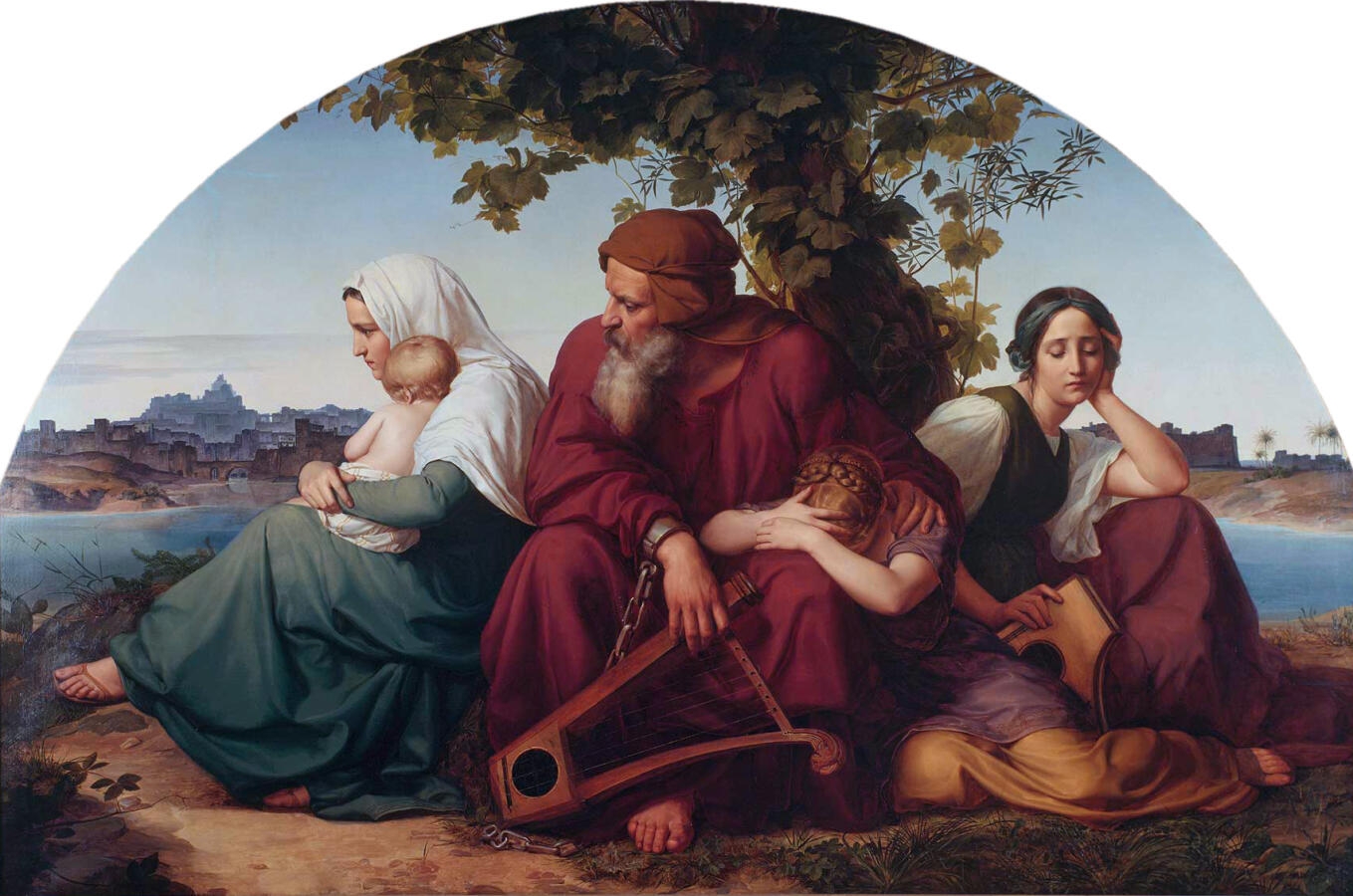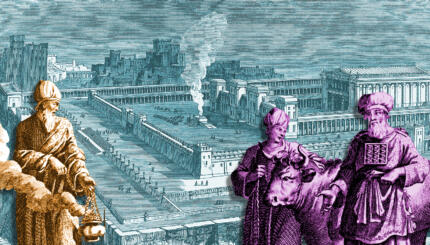Also called Eicha, the Book of Lamentations (which is in the Writings/Ketuvim section of the Tanakh/Hebrew Bible) is an intricate set of dirges and descriptions of Jerusalem under siege and of the destruction of the First Temple. The elegy bewails Jerusalem, once teeming with life and now sitting abandoned and alone like a solitary widow. It captures the horror of the siege: children pleading for water and bread in vain; cannibalism on the part of hunger-maddened mothers (“those who died by the sword were better off than those who perished by hunger”); nobles hanged; women raped; priests defiled.
Read the full text of the Book of Lamentations in Hebrew and English on Sefaria.
The prophet basically blames Jewish immorality and idolatry for the tragedy. Yet there is a fascinating outburst in Lamentations 3 in which the believer, as it were, accuses God of being the enemy — like a lion lying in ambush to destroy his victim. The prophet comes close to losing his faith (“I thought my strength and hope in the Lord had perished”) before the memory of God’s past kindnesses restores it — barely.
The Book of Lamentations is read softly at first. The volume of the reader’s voice builds to the climax, which is sung aloud by the entire congregation: “Turn us to you, O Lord, and we will return. Renew our days as of old.”
With your help, My Jewish Learning can provide endless opportunities for learning, connection and discovery.
Reprinted with permission of the author from The Jewish Way: Living the Holidays.



